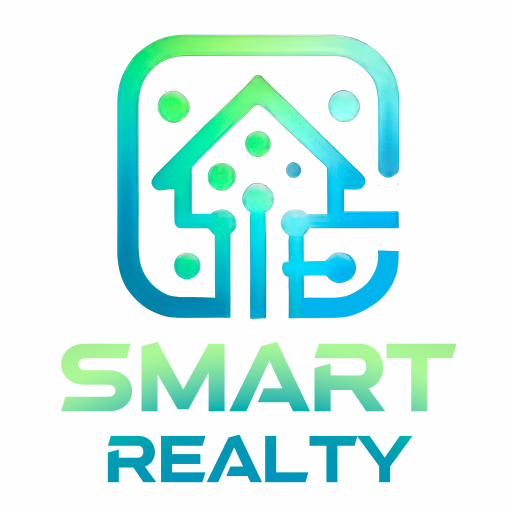In recent years, the real estate industry has witnessed a significant trend in the tokenization of real estate assets. This innovative practice harnesses the power of blockchain technology to transform physical properties into digital assets known as tokens. This transformative process creates new investment opportunities and enhances accessibility to the real estate market.
Tokenization is made possible through the use of security tokens, which represent a financial interest in the underlying real estate asset. These tokens offer numerous advantages for both investors and property owners, such as access to new markets, increased market liquidity, and the ability to fractionalize real estate assets.
Key Takeaways:
- Tokenization leverages blockchain technology to convert physical real estate assets into digital tokens.
- Security tokens provide financial ownership and offer various advantages, including access to new markets and increased liquidity.
- The tokenization of real estate assets allows for fractional ownership and diversification of investment portfolios.
- Blockchain technology ensures transparency, immutability, and security of transactions in the real estate market.
- The future of tokenized real estate looks promising, with increased adoption expected as regulations become clearer.
The Growing Trend of Real Estate Tokenization
Real estate tokenization is experiencing a significant upsurge in popularity, primarily driven by the emergence of cryptocurrencies and the widespread adoption of blockchain technology. This innovative process involves transforming real estate assets into digital tokens, opening up new and exciting investment opportunities in the real estate market.
Within the realm of real estate tokenization, two types of tokens play a pivotal role: utility tokens and security tokens. Utility tokens enable access to specific services or ecosystems within blockchain platforms, while security tokens represent a financial stake in the underlying asset and adhere to laws and regulations governing traditional securities.
One of the key advantages of real estate tokenization through security tokens is the access it provides to previously untapped markets. By fractionalizing real estate assets into manageable units, investors can now participate in real estate investments that were once out of reach. This fractional ownership not only lowers the barriers to entry, but also allows for a more diversified portfolio.
In addition to unlocking new market opportunities, real estate tokenization also enhances market liquidity. By digitizing real estate assets and facilitating the ease of trading security tokens, investors can buy and sell fractional ownership stakes with greater efficiency.
A notable advantage of tokenization is its applicability to real estate funds. By leveraging blockchain technology, real estate fund managers can offer investors the benefits of tokenization, such as increased liquidity, efficient asset management, and improved transparency.
Utility Tokens vs Security Tokens
Utility tokens and security tokens play distinct roles in real estate tokenization. Utility tokens, as mentioned earlier, serve as access tokens within blockchain ecosystems, enabling users to take advantage of specific services or functionalities.
On the other hand, security tokens represent ownership or financial interests in real estate assets. These tokens adhere to regulations governing traditional securities, providing investors with the legal rights and protections associated with their fractional ownership.
Real estate tokenization through security tokens allows for access to new markets, fractionalization of assets, and increased market liquidity.
The Impact of Real Estate Tokenization
The increasing popularity of real estate tokenization and the adoption of blockchain technology have profound implications for the real estate industry. This disruptive trend offers numerous benefits, including:
- Expanded investment opportunities
- Enhanced market liquidity
- Lower barriers to entry
- Improved transparency and trust
Through real estate tokenization, investors gain access to a broader range of investment opportunities, both domestically and globally. This means that individuals who previously may have been excluded from the real estate market due to financial constraints or geographical limitations can now participate and benefit from fractional ownership.
The increased liquidity resulting from tokenization allows for faster and easier transactions, eliminating many of the traditional hurdles associated with buying and selling real estate assets. This opens up possibilities for investors to diversify their portfolios and make quicker investment decisions.
Furthermore, the transparency and trust offered by blockchain technology assure investors of the security and immutability of their transactions. This increased level of transparency fosters confidence in real estate investments and mitigates concerns surrounding fraud and dispute resolution.
In conclusion, real estate tokenization represents a transformative trend in the industry, driven by the rise of blockchain technology and the numerous advantages it offers. As tokenization continues to gain traction, we can anticipate a fundamental shift in the way real estate investments are made and managed.
The Benefits of Tokenization
Tokenization of real estate assets offers several benefits for investors and the real estate industry. With the emergence of real estate investment tokens, individuals can now access global investment opportunities, breaking traditional geographical limitations.
One of the key advantages of tokenization is fractional ownership, which allows for smaller, more accessible shares of properties. This eliminates the need for substantial capital investment, making real estate investment more inclusive and enabling greater portfolio diversification. Investors can now participate in high-value properties that were previously out of reach.
Enhanced liquidity is another significant benefit of tokenization. By utilizing blockchain technology, buying and selling property shares becomes easier and more efficient. Investors can have increased flexibility in managing their investments, allowing them to enter or exit positions with greater ease.
Transparency is a fundamental aspect of blockchain technology. By leveraging this technology for real estate tokenization, transactions are recorded on a decentralized ledger, ensuring immutability and transparency. This transparency bolsters investor confidence and trust in the system, as they can verify the authenticity and history of transactions.
Benefits of Tokenization:
- Access to global investment opportunities
- Fractional ownership for smaller, more accessible shares
- Enhanced liquidity for buying and selling property shares
- Transparency and trust through blockchain technology
Tokenization has revolutionized the real estate industry by opening up new possibilities for investors worldwide. Through real estate investment tokens, individuals can now participate in global projects, own fractional shares, benefit from enhanced liquidity, and enjoy the transparency provided by blockchain technology.
With the growing adoption of tokenization and the increasing integration of blockchain in the real estate sector, the future of this market looks promising. By overcoming regulatory challenges and addressing technical issues, the real estate industry can fully realize the potential of tokenization, unlocking even more opportunities for investors.


Challenges and Future Outlook for Tokenized Real Estate
While the tokenization of real estate assets offers exciting opportunities, it also comes with its fair share of challenges. These challenges span regulatory hurdles, technical obstacles, and market acceptance.
Regulatory Challenges:
One of the main challenges in tokenized real estate is navigating the evolving regulatory frameworks. As the technology and market continue to develop, compliance with securities and crowdfunding regulations becomes crucial. Proper adherence to these regulations is essential to ensure investor protection and market integrity.
Technical Challenges:
Tokenized real estate faces technical challenges that need to be addressed for widespread adoption. Scalability, or the ability to handle a large number of transactions securely, is a key concern. Interoperability, or the seamless communication between different blockchain networks, also plays a significant role. Additionally, ensuring the safe and secure custody of digital assets poses technical hurdles that require innovative solutions.
Market Acceptance:
The acceptance and adoption of tokenized real estate by the market are important factors influencing its growth. Despite the increasing popularity of blockchain technology, there is still a need to educate and raise awareness among investors and industry participants about the benefits and potential of tokenized real estate. Building trust and familiarity with this new investment model is crucial to drive broader acceptance.
However, despite these challenges, the future of tokenized real estate looks promising. As blockchain technology continues to mature and regulatory frameworks become clearer, we can expect increased adoption and innovation in this space.
Future Outlook:
The future of tokenized real estate holds tremendous potential. As awareness and understanding of blockchain technology grow, collaboration between traditional real estate institutions and blockchain platforms will increase. This collaboration is poised to pave the way for greater market acceptance and a surge in tokenized real estate projects and platforms.


<!–
| Challenges | Regulatory | Technical | Market Acceptance |
|---|---|---|---|
| Evolving regulatory frameworks | X | – | – |
| Compliance with securities and crowdfunding regulations | X | – | – |
| Scalability | – | X | – |
| Interoperability | – | X | – |
| Asset custody | – | X | – |
| Market education and awareness | – | – | X |
–>
Comparison of Tokenized Real Estate Challenges
| Challenges | Regulatory | Technical | Market Acceptance |
|---|---|---|---|
| Evolving regulatory frameworks | X | – | – |
| Compliance with securities and crowdfunding regulations | X | – | – |
| Scalability | – | X | – |
| Interoperability | – | X | – |
| Asset custody | – | X | – |
| Market education and awareness | – | – | X |
Conclusion
The tokenization of real estate assets is poised to disrupt the traditional investment landscape by leveraging blockchain technology. Through fractional ownership and enhanced liquidity, investors can tap into a previously untapped market, opening up exciting investment opportunities. With increased awareness and advancements in blockchain technology, the future outlook for tokenized real estate is promising.
By tokenizing real estate assets, individuals can access investment opportunities with lower entry barriers. Fractional ownership allows investors to own smaller shares of properties, enabling greater diversification and reducing the need for significant capital. This opens the door to a broader range of investors who were previously excluded from the real estate market.
In addition to providing access to investment opportunities, blockchain technology enhances transparency and immutability. Every transaction is recorded on a distributed ledger, ensuring that all parties have a clear view of ownership and the history of the asset. This transparency increases trust and confidence among investors, further driving the adoption of tokenized real estate.
While there are challenges to overcome, such as evolving regulations and technical complexities, the future of tokenized real estate looks bright. As the industry matures and regulatory frameworks become clearer, we can expect to see increased market acceptance and collaboration between traditional real estate institutions and blockchain platforms. These developments will pave the way for continued growth and innovation in the tokenized real estate market.
FAQ
What is real estate tokenization?
Real estate tokenization is the process of transforming physical real estate assets into digital tokens using blockchain technology. These tokens represent ownership shares in the underlying property and offer new investment opportunities.
What are the different types of tokens used in real estate tokenization?
There are two main types of tokens used in real estate tokenization: utility tokens and security tokens. Utility tokens provide access or services within specific blockchain ecosystems, while security tokens represent a financial interest in the underlying asset.
What are the benefits of real estate tokenization?
Real estate tokenization offers several benefits, including access to global investment opportunities, fractional ownership of properties, enhanced market liquidity, and increased transparency and security of transactions.
What are the challenges and future outlook for tokenized real estate?
Challenges for tokenized real estate include evolving regulatory frameworks, technical issues such as scalability and interoperability, and market acceptance of blockchain technology. However, as regulations become clearer and technology advances, the future outlook for tokenized real estate is promising.
How does real estate tokenization revolutionize the investment landscape?
Real estate tokenization revolutionizes the investment landscape by allowing investors to access a previously untapped market with lower entry barriers. Through fractional ownership, enhanced liquidity, and transparency provided by blockchain technology, investors can diversify their portfolio and unlock new investment opportunities in real estate.

